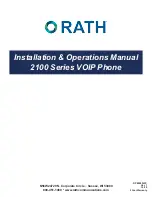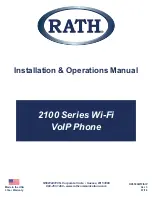
Standby and talk times will vary depending on phone usage patterns and conditions.
Battery power consumption depends on factors such as network configuration, signal
strength, operating temperature, features selected, frequency of calls, and voice, data,
and other application usage patterns.
Battery Precautions
• Never use any charger or battery that is damaged in any way.
• Use the battery only for its intended purpose.
• If you use the phone near the network¡¯s base station, it uses less power; talk and
standby time are greatly affected by the signal strength on the cellular network and the
parameters set by the network operator.
• Battery charging time depends on the remaining battery charge and the type of battery
and charger used. The battery can be charged and discharged hundreds of times, but it
will gradually wear out. When the operation time (talk time and standby time) is
noticeably shorter than normal, it is time to buy a new battery.
• If left unused, a fully charged battery will discharge itself over time.
• Use only Samsung-approved batteries and recharge your battery only with Samsung-
approved chargers. When a charger is not in use, disconnect it from the power source.
Do not leave the battery connected to a charger for more than a week, since
overcharging may shorten its life.
• Extreme temperatures will affect the charging capacity of your battery: it may require
cooling or warming first.
• Do not leave the battery in hot or cold places, such as in a car in summer or winter
conditions, as you will reduce the capacity and lifetime of the battery. Always try to keep
the battery at room temperature. A phone with a hot or cold battery may temporarily not
work, even when the battery is fully charged. Li-ion batteries are particularly affected by
temperatures below 0
℃
(32
℉
).
• Do not short-circuit the battery. Accidental short- circuiting can occur when a metallic
object (coin, clip or pen) causes a direct connection between the + and - terminals of the
battery (metal strips on the battery), for example when you carry a spare battery in a
pocket or bag. Short-circuiting the terminals may damage the battery or the object
causing the short-circuiting.
• Dispose of used batteries in accordance with local regulations. In some areas, the
disposal of batteries in household or business trash may be prohibited. For safe
disposal options for Li-Ion batteries, contact your nearest Samsung authorized service
center. Always recycle. Do not dispose of batteries in a fire.
Care and Maintenance
Your phone is a product of superior design and craftsmanship and should be treated with
Summary of Contents for SM-G150N0
Page 1: ...User manual SM G150N0...



































